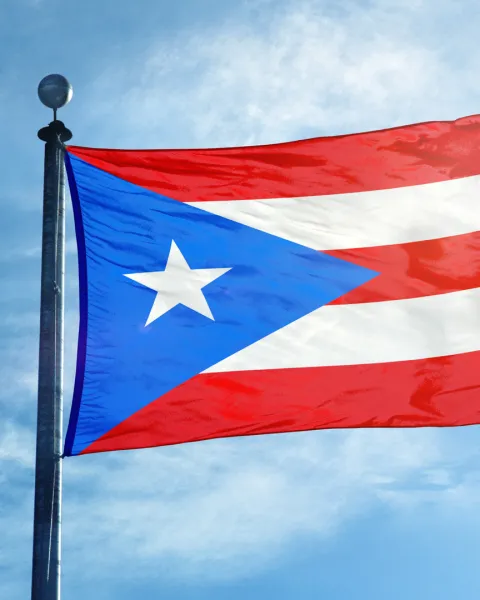Takeaways
- Puerto Rico courts lack jurisdiction over claims involving conduct “arguably” protected or prohibited by the NLRA, even if framed under local laws.
- The NLRB has exclusive authority to adjudicate unfair labor practice claims covered by the NLRA — state or local courts must defer unless the NLRB declines jurisdiction.
- Employers facing claims related to union activity or retaliation should evaluate NLRA preemption early and coordinate with labor counsel to assert defenses or direct claims to the NLRB.
Related link
Article
The Puerto Rico Supreme Court has reaffirmed that Puerto Rico courts lack subject-matter jurisdiction over employment claims that arguably involve unfair labor practices covered by the National Labor Relations Act (NLRA). Rodríguez Vázquez and Santana Marrero v. Hospital Español Auxilio Mutuo, 2025 TSPR 55 (May 21, 2025).
This ruling underscore the exclusive jurisdiction of the National Labor Relations Board (NLRB) over such claims — even when plaintiffs seek relief under local laws.
Background
Two unionized employees filed separate lawsuits against their former employer, Auxilio Mutuo Hospital, under Puerto Rico’s Law 115 (Retaliation) and Law 80 (Wrongful Discharge). They alleged that they were terminated in retaliation for participating as witnesses in a union-backed complaint filed with the Puerto Rico Department of Health against the Hospital.
In response, the Hospital filed motions to dismiss both cases for lack of subject-matter jurisdiction, arguing that the alleged conduct, retaliation for union-related activity, fell within the scope of Sections 7 and 8 of the NLRA and, therefore, must be adjudicated exclusively by the NLRB.
The trial court denied the motions to dismiss, but the Puerto Rico Supreme Court reversed the denial.
Court’s Ruling
The Puerto Rico Supreme Court agreed with the employer and held that local courts are preempted from hearing claims that fall within the scope of the NLRA, even when the plaintiffs framed and brought their claims under Puerto Rico statutes.
Accordingly:
- Substance over labels: The Court emphasized that the preemption analysis focuses not on the nature of the remedy sought or the law invoked but on the type of conduct alleged. If the conduct is arguably a violation of the NLRA, the case belongs before the NLRB.
- Identical allegations: The Court noted that the employees had already filed charges with the NLRB based on the same facts — testifying against their employer in a union-backed complaint. This allegation is covered by Section 8 of the NLRA, which prohibits employers from retaliating against employees for filing charges or giving testimony under the Act.
- Federal preemption: The Court held that the U.S. Congress has approved laws preempting the regulation of NLRA-protected or -prohibited conduct. As a result, federal preemption applies, and neither state courts nor federal courts have jurisdiction over such disputes unless the NLRB declines to assert jurisdiction.
- Deference to the NLRB: The opinion clarified that only after the NLRB determines the alleged conduct is not protected or prohibited by the NLRA could a state court potentially exercise jurisdiction over related claims.
- Risk of inconsistent rulings: The Court warned that permitting state-level adjudication of such claims could interfere with the uniform administration of federal labor policy that can lead to inconsistent outcomes and undermine the NLRB’s authority.
Takeaways for Employers
This decision sends a clear message: employers and employees cannot bypass the NLRA’s framework by repackaging unfair labor practice claims under local employment statutes. Employers facing claims involving union activity, retaliation for testimony, or concerted employee action should closely assess whether the NLRB has, or should have, exclusive jurisdiction.
Jackson Lewis attorneys are available if you have any questions about this and other labor and employment issues.
© Jackson Lewis P.C. This material is provided for informational purposes only. It is not intended to constitute legal advice nor does it create a client-lawyer relationship between Jackson Lewis and any recipient. Recipients should consult with counsel before taking any actions based on the information contained within this material. This material may be considered attorney advertising in some jurisdictions. Prior results do not guarantee a similar outcome.
Focused on employment and labor law since 1958, Jackson Lewis P.C.’s 1,100+ attorneys located in major cities nationwide consistently identify and respond to new ways workplace law intersects business. We help employers develop proactive strategies, strong policies and business-oriented solutions to cultivate high-functioning workforces that are engaged and stable, and share our clients’ goals to emphasize belonging and respect for the contributions of every employee. For more information, visit https://www.jacksonlewis.com.



